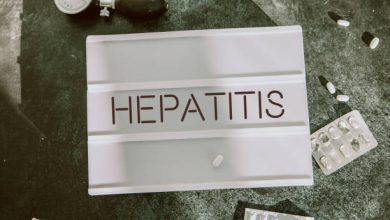10 Things Blacks Need to Know About Colorectal Cancer


Colorectal cancer remains a significant health concern, particularly for the Black community, which faces higher incidence rates and lower survival rates compared to the white population. According to a study, Black Americans are about 20 percent more likely to develop colorectal cancer and 40 percent more likely to die from it than other groups. Despite these statistics, screening rates among Black Americans are historically lower, contributing to delayed detection and poorer outcomes.
BlackDoctor.org sat down with Dr. Folasade P. May, Co-leader of the Stand Up To Cancer Colorectal Cancer Health Equity Dream Team to discuss the latest data on colorectal cancer disparities, including the factors driving these trends and the importance of early detection. Dr. May, who is actively working to address these disparities in medically underserved communities and improve access to screening and care, sheds light on why discussions about colorectal cancer are stigmatized in the Black community, hindering awareness and prevention efforts as well as what Black people need to know about the disease.
Here is what you need to know about colorectal cancer, according to Dr. May:
1. Colorectal Cancer is Deadly, But Highly Preventable
Colorectal cancer is the second leading cause of cancer-related deaths in the United States. Despite its high incidence and mortality rates, there is often a stigma associated with discussing colorectal cancer due to its association with the colon and rectum.
“Overall, colorectal cancer is the number two cancer killer in the country. A lot of people talk a lot about breast cancer and prostate cancer. People even talk about brain cancer a lot, which is actually pretty uncommon,” Dr. May shares. “But there’s really a lot of stigma in talking around colorectal cancer because it’s a back-end, saying word. Some people don’t want to talk about it, and that’s really unfortunate because, even though it’s the number two cancer killer, it’s highly preventable.”
2. Your Risk is Elevated
Black individuals are at a higher risk of developing colorectal cancer compared to other racial groups. Factors such as family history, age, diet, and lifestyle can contribute to this increased risk. This makes it essential for you to be aware of these risk factors and take proactive steps to manage them.
“We know that colorectal cancer risk is associated with many lifestyle factors, and unfortunately, many of these lifestyle factors are more commonly practiced in Black communities,” Dr. May shares.
RELATED: Colon Cancer Isn’t A Man’s Disease: What Every Woman Must Know
3. Screening Gaps: We Aren’t Checking Often Enough
Screening for colorectal cancer is crucial for early detection and treatment. Current guidelines recommend that everyone, including Black individuals, should start regular screenings at age 45.
However, those with a family history of colorectal cancer may need to start screening earlier. Understanding these guidelines and following them can help detect colorectal cancer in its early stages when it is most treatable.
“When you look at Black individuals, we have unique challenges in that we have the highest rates of this disease, we’re more likely to die from this disease, and we are less likely to get screened… Our screening rates, although screening can be life-saving, tend to be under the screening rates that we see in affluent populations and white populations,” Dr. May, who is using a grant to facilitate screenings in neighborhoods across the United States with a high concentration of underinsured or uninsured people of color, emphasizes.
These screenings are important whether or not you have symptoms. “There’s a misconception that you have to have symptoms to be




